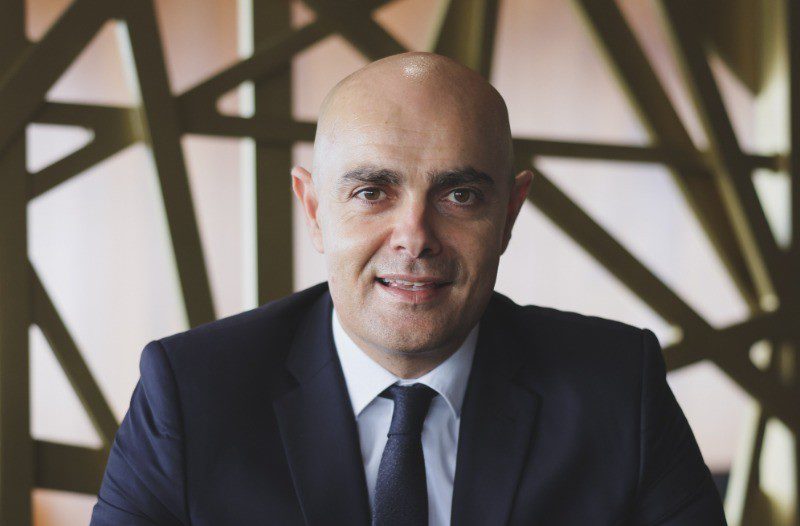Malta Institute of Accountants (MIA) CEO Maria Cauchi Delia has called for a more “robust legislative framework” in order to continue strengthening Malta’s position as a global financial hub with a distinct European perspective.
This came during the MIA Biennial Conference 2023, which focused on rethinking and reforming the financial services industry, addressing the key areas that underpin the required reforms towards upgrading the competitiveness and reputation of the Maltese jurisdiction. Stakeholders from regulators and authorities, together with industry professionals, looked at how the Financial Services Strategy seeks to address existing bottlenecks and identify where the economic opportunities of the near future lie.
The event is the institute’s largest conference on its calendar of events, with almost 400 people present.
Opening the conference, Ms Cauchi Delia highlighted that the recently-launched Financial Services Strategy focuses on essential reforms and specific proposals to leverage Malta’s “unique advantages and enhance its position as a global financial hub” which also has a European perspective.

“The key lies in strengthening and updating existing resources while exploring new opportunities for specialised financial products,” she added.
“Achieving this requires a robust legislative framework and clear regulatory guidelines to establish a solid foundation for the future,” Ms Cauchi Delia continued.
MIA President David Delicata called on stakeholders to strive hard towards improving Malta’s reputation. “If we really want to promote Malta as a jurisdiction of quality, our country must continue implementing reforms related to the rule of law, governance, media freedom and others, and more importantly, make sure that such reforms are not solely seen as boxes to be ticked,” he explained.
“The attractiveness of our nation starts first and foremost from here,” he added. Mr Delicata also dwelled on MIA’s role in developing and implementing this strategy, describing this as a “clear demonstration of the institute’s added value”.
Joseph Zammit Tabona, Chairperson of the Malta Financial Services Advisory Council (MFSAC), emphasised that it is now time to commence the actual implementation of the strategy. He explained how the MFSAC has presented a clear plan outlining the prioritisation of a set of reforms that can be completed within a span of 18 months.
To ensure successful execution, some 20 working groups will be formed to closely monitor the strategy’s objectives. Additionally, a project management office will oversee the entire implementation process. These dedicated working groups will each focus on a specific subject area in order to facilitate and expedite the process.
Mr Zammit Tabona also insisted that the success of the strategy relies on the input of practitioners and service providers.
Minister for Finance and Employment Clyde Caruana insisted that a new economic model for Malta will need to focus on technology and capital-intensive industries, otherwise it will be very hard to sustain the current level of growth, citing the Financial Services Strategy as the “right example” of what we have to look at and work on, solutions which provide higher value-added.
He continued that we need structural changes, “not mere reforms”. He also noted that there will be other challenges in the months ahead, particularly in terms of tax. Minister Caruana also explained that Europe is moving ahead at a very fast pace and will consolidate further economic and financial policies. He added that this will have a big impact on Malta and thus we need to “make sure that the required changes are implemented”.
Shadow Finance Minister Jerome Caruana Cilia described this decade as crucial, requiring important decisions to be made regarding the country’s path forward. This applies to various sectors such as climate change, environment, foreign policy, and specifically, financial services.
Mr Caruana Cilia argued that the reform should be guided by the main pillars, with these being the operating environment, technology and innovation, talent, and communication and promotion.
During the event, high-profile stakeholders from the public and private sector addressed various elements of the strategy including taxation, sustainability, national payments infrastructure, asset management, capital markets, insurance and pensions, as well as fintech. Representatives from different regulators whose activity impacts the future of the industry, including the Financial Intelligence Analysis Unit (FIAU), the Malta Business Registry, the Malta Financial Service Authority, as well as the Commissioner for Revenue also addressed the conference. The conference also featured a number of international speakers, including President of Accountancy Europe Mark Vaessen.
While noting the flavourful agenda that ensued throughout the day, MIA Vice President Mark Bugeja closed off the conference by saying that the industry and the profession will continue to grow and flourish, but “all stakeholders need to play a role in making it happen”.
The Biennial Conference 2023 was supported by Epic, BNF Bank, the Malta Stock Exchange, Shireburn Software Limited and Finance Incorporated Limited.
Featured Image:
MIA CEO Maria Cauchi Delia
‘Sometimes not winning is important’: CISO Malcolm Portelli finds purpose in setback
'There is always a shimmer of hope.'
Industry leaders to present cutting-edge threat prevention strategies at ESET Cybersecurity Day
Keynote speakers Keith Cutajar and Christos Tsoulfas will share emerging trends and best practices in digital security.
The quiet power of wine in business
As AI and automation saturate the business landscape, authentic gestures, like the right bottle of wine, become more valuable, not ...
Malta Ship Registry’s transition to fully electronic certification shows it is ‘sailing strong, leading global’
The move follows the successful digitalisation of seafarer documentation, with over 94,000 electronic certificates issued since 2021 across all ranks.









